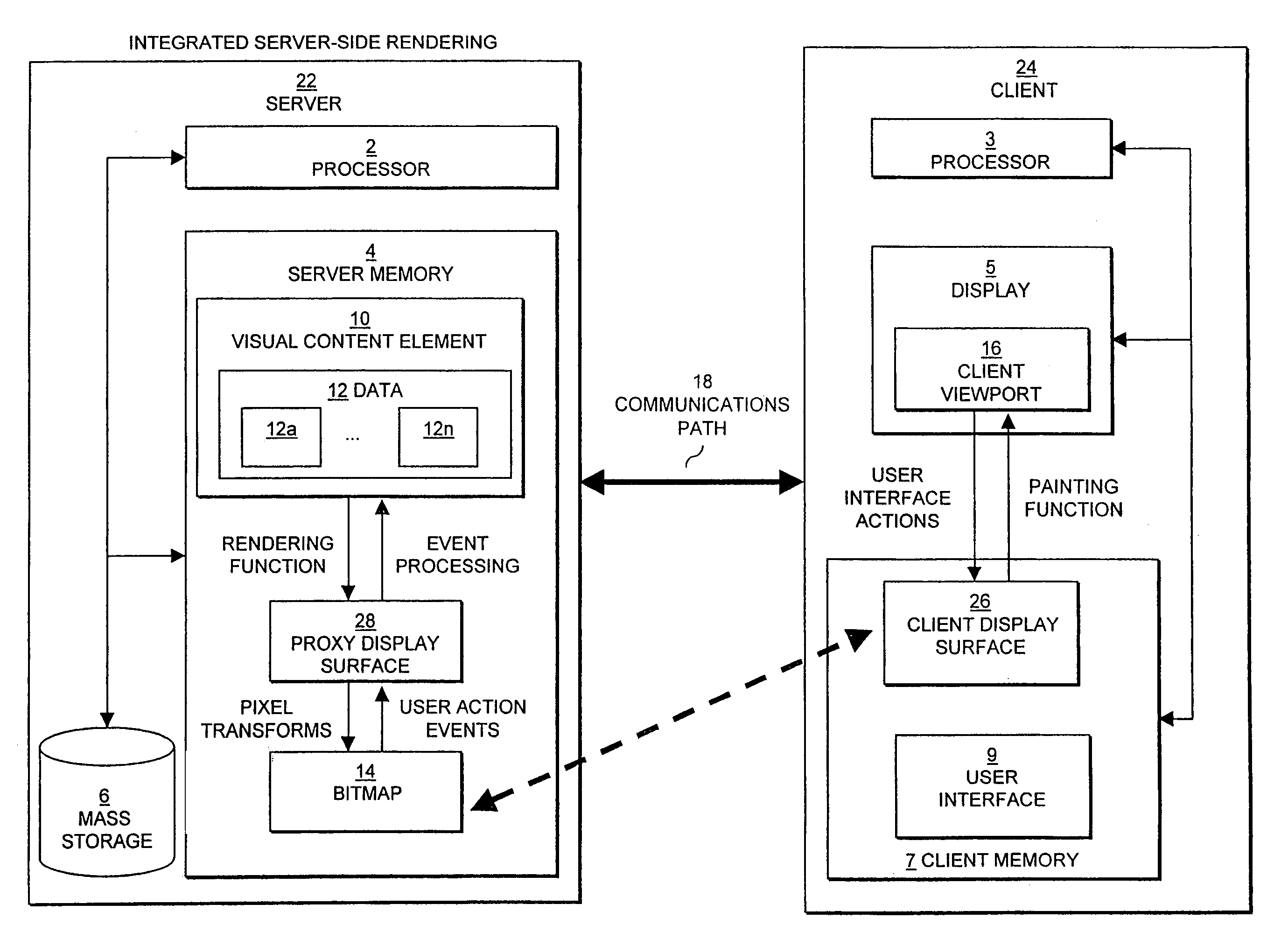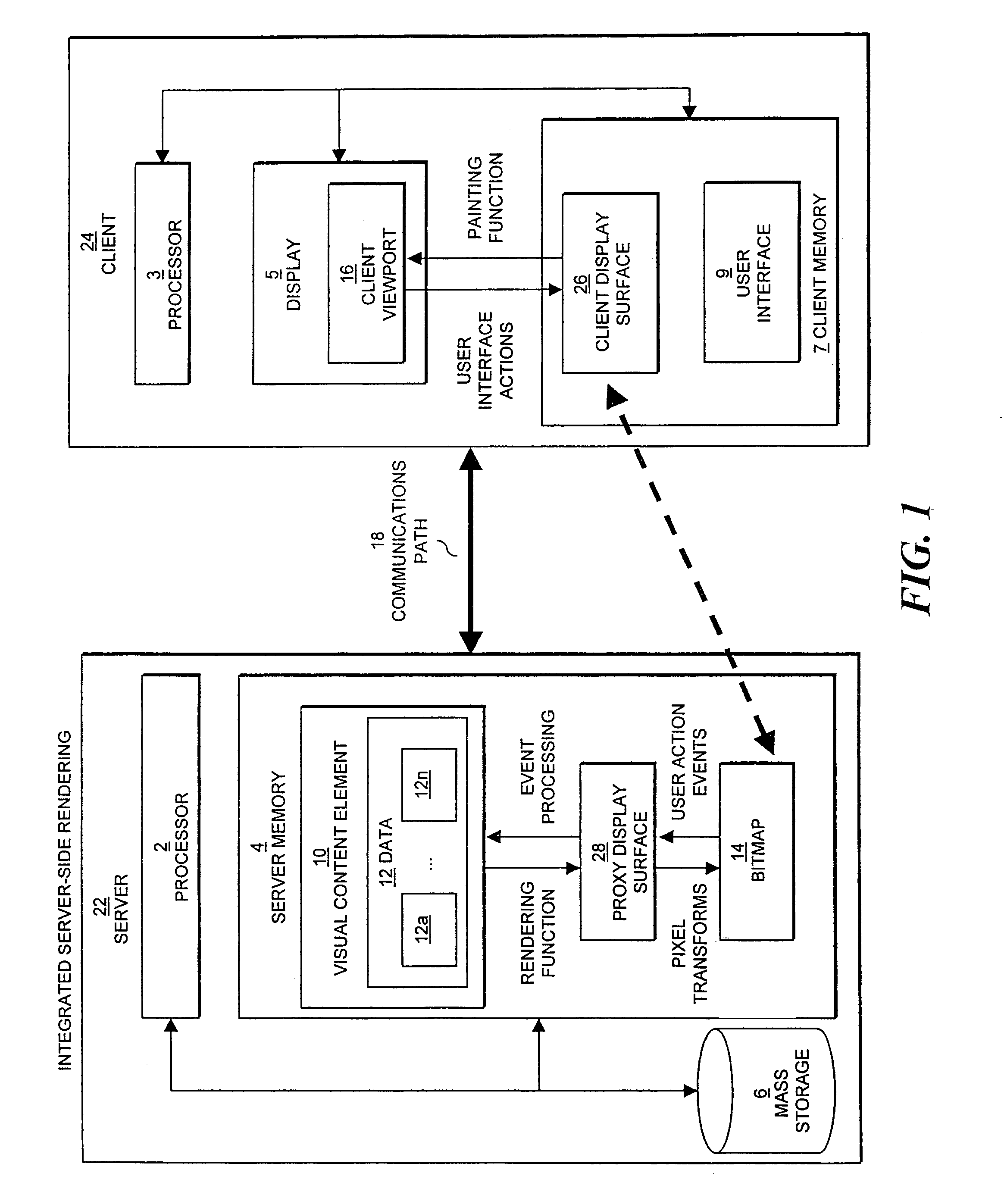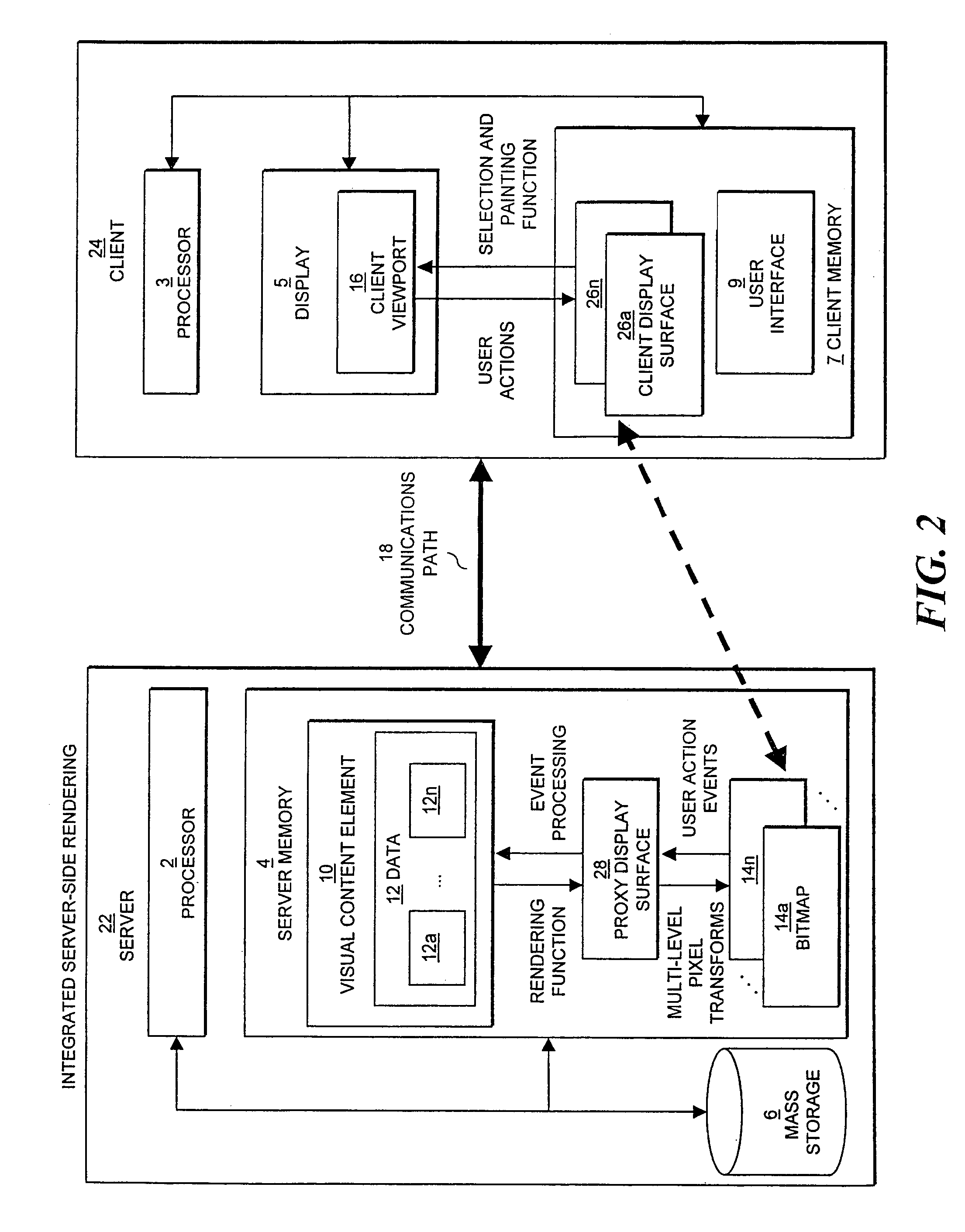Visual content browsing using rasterized representations
a visual content and rasterization technology, applied in the direction of static indicating devices, instruments, program control, etc., to achieve the effect of improving performance and convenient reading only the tex
- Summary
- Abstract
- Description
- Claims
- Application Information
AI Technical Summary
Benefits of technology
Problems solved by technology
Method used
Image
Examples
Embodiment Construction
[0057]Much of the Internet is based on the client-server model of information exchange. This computer architecture, developed to accommodate the “distributed computing” environment that characterizes the Internet and its component networks, contemplates a server (sometimes called the host) that services the requests of a large number of smaller computers, or clients, which communicate with it. A server is typically a workstation computer or mainframe computer, while clients may be, for example, other workstation computers, mainframe computers, simple personal computers, PDAs, or wireless phones.
[0058]Communications supporting the exchange of information over a computer network such as the Internet may be implemented on a client device by means of a browser. A browser is a computer program that provides a navigating capability allowing for the exchange of information, such as Web pages, with local or remote nodes, and a viewing capability allowing for the viewing of information excha...
PUM
 Login to View More
Login to View More Abstract
Description
Claims
Application Information
 Login to View More
Login to View More - R&D
- Intellectual Property
- Life Sciences
- Materials
- Tech Scout
- Unparalleled Data Quality
- Higher Quality Content
- 60% Fewer Hallucinations
Browse by: Latest US Patents, China's latest patents, Technical Efficacy Thesaurus, Application Domain, Technology Topic, Popular Technical Reports.
© 2025 PatSnap. All rights reserved.Legal|Privacy policy|Modern Slavery Act Transparency Statement|Sitemap|About US| Contact US: help@patsnap.com



